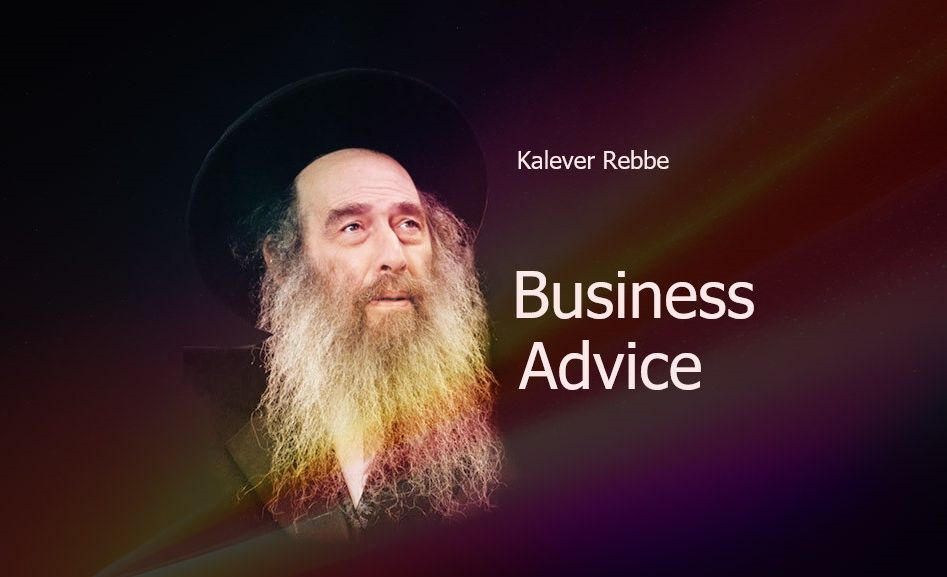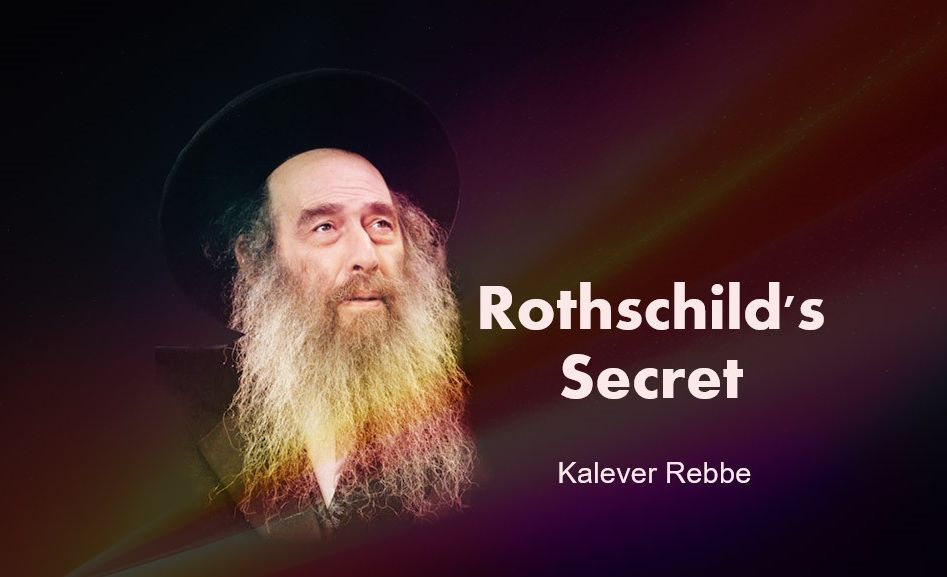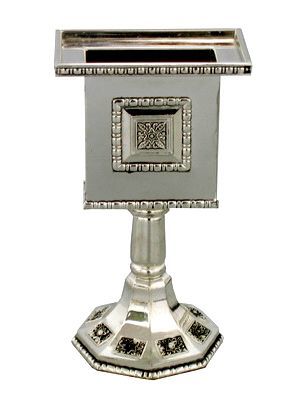
The Five Laws of Commerce
The greatest pursuit in life is… wealth. Here are five strategies to increase your income!

One of the first blessings we recite every morning is the commandment to busy ourselves with Torah. The word we use in the blessing, la’asok means to do business. In Israel, an esek is a business. When you want to make your billion–dollar startup in Silicon Wadi, you need to first get your license from the office of the Ta’asuka, or business.
Why do we start our day relating our Torah to conducting business? Wouldn’t it be better to recite a blessing on learning Torah, doing Torah, or growing in Torah? What’s the message?
We are supposed to dedicate ourselves to daily Torah with the same drive we apply to our business. Our career. Our professional success.
All too often we wake up with the initial thought about what we will make today. Everything else comes later.
But every financial and professional achievement is for this world only.
Your money stays here – you can’t take it with you. It is reassigned to other people. Your job title will go to someone else, likely a total stranger. Your influence evaporates.
At the end of your life, your net worth doesn’t even equal the mound of dirt covering what’s left of your flesh.
It is the mitzvot that you perform that hold their value. The Torah you learn. The prayers you recite. The charity you give. The personal character traits you work to improve. The kindness you show others. These are the assets you acquire that hold their value as you transition from this world to the Next world.
Even more importantly, your spiritual assets never lose value. A successful business can face new competition, and investments can turn sour. But everything you earn spiritually is yours for eternity – and there is no sin that you can commit which will ever take away that eternal merit.
The Five Laws of Commerce
How do we make Torah our business? By applying the fundamental rules of business to serving Hashem:
1. Early to bed and early to rise.
Benjamin Franklin once said: “Early to bed and early to rise, makes a man healthy, wealthy, and wise.” He was a successful entrepreneur.
Just like a big businessman wakes up at 4AM to make money, we can wake up early to serve Hashem. The effort required to wake up at such an hour boosts the value of this deed. Rebbe Nachman extolls the value of Torah learning in the wee hours of the morning before morning prayers, and especially how personal prayer during these hours propels a person forward in leaps and bounds.
American President Donald J. Trump would wake up at 4AM to check out properties. Israeli Housing Minister Ya’akov Litzman wakes up at 3:30 AM to learn Torah, recite Psalms, and say the morning prayers before beginning his day.
2. Diversify your assets.
The best investors make sure they have their money in a handful of different assets. If one asset were to implode, they still have most of their portfolio intact.
Put in your hours at the office. Making a living is something we must do one way or another. It’s also the opportunity to perform the mitzvot of “do not steal,” “do not covet,” “love your neighbor,” and “I am Hashem your G-d,” which is the commandment of having emuna in G-d.
One of the greatest acts of faith is to navigate in a world of sharks who don’t follow the rules and get ahead of everyone else. However, you stand strong in your faith and trust in G-d, and keep your loyalty to Hashem and His Torah. It’s an everlasting statement that you recognize that ultimately, all wealth and income only comes from G-d, just like everything else.
Being honest in a dog eat dog world is one of the finest ways to show Hashem that He is the One Who holds every leash. There is a good reason why the question “Were you honest in business?” is the very first question asked of you in the Heavenly Court after your 120 years in this world.
3. Schedule your hours.
Warren Buffett said it best to Bill Gates once: “I can buy whatever I want, but I can’t buy time.” These two may have more money than everyone else, but Hashem gives them the same 24 hours in a day He gives the rest of us.
Every successful professional plans his day. He plans his week. He plans his year, even his decade with goals and daily strategies on how they will be effectively conquered.
A G-d fearing man has two jobs every day: To advance in his office and to advance in His office. He has to plan when to pray and when to work. When to learn and when to network. When to stop and reflect, and when to put it all aside to wash dishes, make the beds, read the kids bedtime stories, and devote himself exclusively to his family.
To keep moving forward on all fronts, you have to plan your movements.
4. There is no such thing as “enough.”
A businessman never says, “We’ve made enough money, let’s go home.”
If you had a successful year, you want the next one to be better. If you launched a profitable product, you are thinking about the 2.0 version. A good employee is always looking for a promotion. A successful entrepreneur is always looking for new opportunities to grow his business.
The same goes for Torah.
We never stop learning Torah. On Simchat Torah, we both finish the Torah, and immediately start it again. When we learn the laws of Guarding our Speech (lashon hara), we look for more areas where we can improve our speech.
Just like we do everything in our power to amass as many 000s to the end of our yearly income statement, we are commanded to amass as much lines, chapters, and pages – and words of prayer – in our spiritual account to our Yom Kippur ledger.
5. Learn from everything, even your mistakes.
William Wrigley started out selling soap. To get people to buy his soap, he included a small bag of baking powder. People began to buy the soap just to get the baking powder. Realizing his mistake, he started to sell baking soda. To get people to buy his baking powder, he attached two packages of chewing gum to each can.
People began buying his baking soda to get the gum.
Out of these two “errors,” Wrigley built his gum empire. It lasted for over a century.
In business, mistakes are expected. The trick is to be humble enough to accept them and clever enough to learn from them. William Wrigley parlayed his two mistakes into a century long empire valued at $23 billion.
It is up to us to turn every setback, miscalculation, and outright sin into a learning experience that will propel us even higher. This is exactly what repenting from love is all about – if instead of repenting out of fear of punishment, you work on improving yourself and praying more than Hashem should help you with that subject – then the sin becomes a mitzvah! The end result was that it brought you closer to your purpose in this world, so clearly it’s good! Using this process, we acquire assets valued far higher than the income generating power of Doublemint Gum.
If we can harness our drives for success in this world towards greatness in the Next world, what we acquire in the process will withstand the test of time.












Tell us what you think!
Thank you for your comment!
It will be published after approval by the Editor.